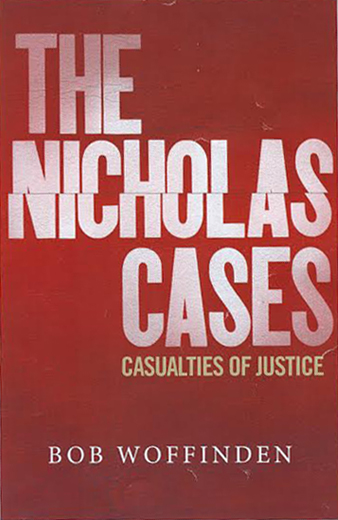Review: The Nicholas Cases

The Nicholas Cases: Casualties of Justice by Bob Woffinden

In 2006 I was the editor of a tiny astrological magazine and one of my regular contributors sent in an article about the Lady in The Lake murder. Briefly: teacher Gordon Park was convicted of the murder of his wife Carol; she had disappeared in 1976 and her body was found in Coniston Water in 1997. The writer was clearly in favour of Park’s innocence and had put a link to the family’s campaign to have his conviction overturned.
I read it and thought “Well, she’s entitled to an opnion, but he’s guilty, isn’t he? The police investigated thoroughly, the jury found him guilty. So he’s guilty!” Back then I actually believed that British justice couldn’t get things wrong (except of course in really exceptional cases like the Birmingham 6 or Stefan Kiszko.I printed the article, leaving off the campaign link. The writer rang me up, very upset; I gave her some stuff about editorial impartiality.
Today, sixteen years later, I’ve written to her to apologise. Gordon Parks’ case is one of ten that Woffinden believes to be miscarriages of justice. He examines each case forensically, showing what went wrong, how evidence was ignored, mishandled or even lost, how the investigators refused to admit they could be wrong, how assumptions went unquestioned. For example, in one murder case, police quickly became convinced that an Italian suspect was a Mafia hitman simply on the basis of a joke he had made about his “Family”; they even travelled to his parents’ house in Sicily and searched his room. Despite finding nothing there and having the assurances of Italian police that the family had no Mafia connections, they still proceeded with their investigations on that basis and ignored all other leads. In another case, Woffinden highlights evidence that quite strongly suggests police corruption. In a third case, the victim was seen alive – by a close friend who was certain she wasn’t mistaken – the day after her supposed murder. No body, or evidence of murder, was ever found and the friend’s sighting, like the circumstantial evidence suggesting that she had chosen to disappear, was never followed up.
And so on. If you ever thought that British justice never got things wrong, then let this book open your eyes.